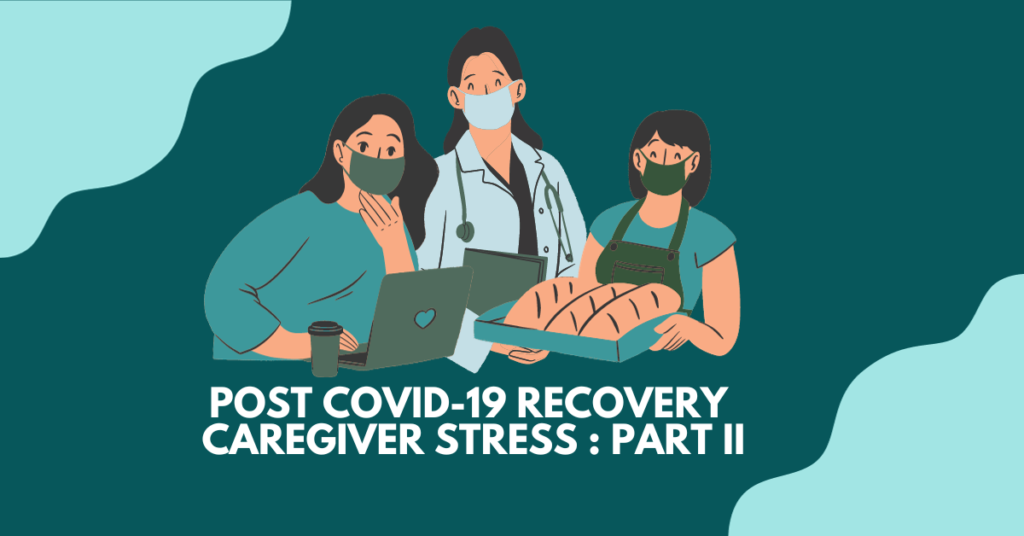
By: Fardeen Rafique
Date: 1st March 2022
Research has shown that caring for caregivers during a family member’s Covid-19 diagnosis and recovery is essential as the psychological experience of these caregivers tend to be varied and concerning. In assessing the psychological experience of caregivers nursing COVID-19 patients, the following has been found to be evident in the early stages (Sun et al., 2020) -:
• Negative emotions
• Discomfort
• Helplessness
• Fatigue
These were caused by the rigorous act of caregiving, fear and anxiety and concern for their family members (Sun et al., 2020). Self-coping styles such as psychological and life adjustment, altruistic acts, team support, and rational cognition were also evident in their behavioral patterns (Sun et al., 2020). Additionally, personal growth was found to have enhanced, manifesting in increased gratefulness and affection, development of responsibility, and self-reflection (Sun et al., 2020). Furthermore, positive emotions were found to be prevalent even in the face of adversities and negative emotions.
Risk Factors Associated with Caregiver Stress:
Individuals who are caregivers are often exposed to several risk factors that may their own physical as well as psychological well-being. Some of these risk factors include social isolation, financial difficulties, witnessing and living with the person they are caregiving, time management difficulties wherein most number of hours are spent caregiving, lack of/ inadequate coping skills, overwhelming emotions leading to decreased ability for problem solving and decision-making, and lack of control in surviving the situation, and experiencing symptoms of burnout and depression.
Signs to Watch out for Caregiver Stress:
Every caregiver gives in a lot of time and energy into looking after their dear ones. However, it may become significantly overwhelming when care is to be provided for prolonged periods of time. Here are some of the signs one needs to watch out for that points toward caregiver stress -:
• Excessive or constant worry
• Increasing fatigue
• Disturbances in sleep schedules and patterns
• Significant increase or decrease in weight
• Easily irritable or cranky
• Overwhelmed by efforts of time management
• Feeling sad and distressed
• Having physical symptoms such as headache, body pain etc.
• Increase in unhealthy coping such as skipping meals, using substance etc.
• Thus, having attentive of these signs of stress in caregivers can broaden the scope for early intervention and the development of healthy coping strategies.
Helping Yourself Throughout Your Journey of Recovery and Caregiving




